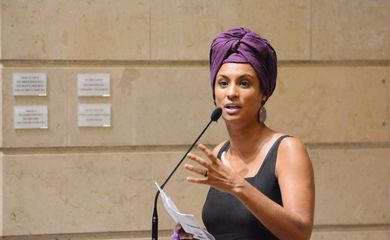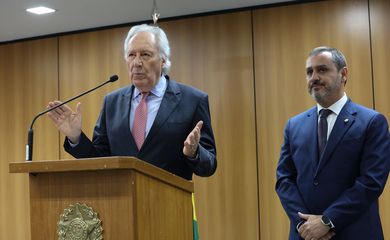Marielle's murder linked to criminal real estate expansion in Rio

The Federal Police's final report on the murders of councilwoman Marielle Franco and her driver, Anderson Gomes, suggests that a political dispute over a land regularization bill may have triggered the crime.

On Sunday (Mar. 24), the brothers Domingos Brazão, an advisor to the State Court of Auditors, and Chiquinho Brazão, a federal representative, were arrested by decision of the Federal Supreme Court as suspected masterminds of the crime.
The police stated that the primary motive for the crime was a political disagreement between the brothers, long-serving politicians in Rio de Janeiro, and members of the Solidarity Party (PSOL), particularly Marielle Franco.
Prior to Franco's murder, PSOL had, for instance, objected to the nomination of then-state representative Domingos Brazão to the State Court of Auditors.
The trigger for the decision to murder Marielle Franco, however, may have been a political dispute over a bill by Chiquinho Brazão in 2017, when he was still a councilor and therefore a colleague of the victim in the Rio de Janeiro City Council.
According to the Federal Police report, Chiquinho was displeased that Franco and the PSOL had voted against one of Brazão's bill involving land regularization. The report suggests that this bill would have benefited areas controlled by militias.
The Federal Police report highlights that land invasion and "land grabbing" are integral to "militia activities in general." The investigation also notes that militia-controlled areas, like Rio das Pedras and other communities in the western part of the city, are key electoral bases for the Brazão family.
The document points out that Chiquinho Brazão's work in the City Council was characterized by support for "questionable legislation on land issues and irregular occupations."
Militias
The term "militia" began to be used by the Rio de Janeiro press in the 2000s to describe armed groups operating in communities in Rio with strong connections to state agents and politicians.
These organizations establish armed control over territories and, using threats and violence, start extorting fees from residents and shopkeepers. They also control various economic activities, including monopolizing the gas trade, selling food products, providing alternative transportation, and operating clandestine cable TV services.
Militias are also targeting real estate development as another lucrative economic activity.
According to Carolina Grillo, a researcher at Fluminense Federal University, militias have expanded in Rio de Janeiro in parallel with urban sprawl. Grillo stated, "The militias are the driving force behind the advancement of armed territorial control as they oversee the urbanization process on the outskirts of Rio's metropolitan region. They leverage their influence in public offices to facilitate land grabbing."
The researcher further notes that militias rely on political support to secure the regularization of lands they currently or intend to occupy. "This is a tactic that Franco had been challenging in the City Council to impede the militias' progress," she explained.
José Cláudio Souza Alves, a researcher at the Federal University of Rio de Janeiro, asserts that land occupation not only brings financial gains for the militia but also serves as an electoral stronghold.
"The land itself is a valuable asset with myriad potential uses. You're going to make a lot of money, you're going to settle people in urban areas, and you're going to give people jobs in construction. This entire group of buyers [of real estate] and builders becomes an electoral base," explained the researcher.
According to Alves, this "is a project aimed at profiting from land theft, invasions, and electoral control."
"Along with the land come the embankments used to elevate the soil. With the construction of buildings and the votes, a range of other services emerges: clandestine cable TV, water and gas sales, electricity distribution, and more," explained Alves.
Inquiry
The Federal Police investigation revealed that, as part of his plea bargain, the man suspected of shooting Marielle Franco, former military policeman Ronnie Lessa, was offered two plots of land to be invaded in Praça Seca, western Rio, as a reward for the crime. These plots were intended for him to establish his own militia.
"When Ronnie Lessa was offered the plots of land to establish his own militia, it wasn't just a highly profitable real estate venture, but a strategy to hold an entire population hostage to his extortion practices," explained researcher Carolina Grillo.
In his X (formerly Twitter) profile, the Minister of Human Rights and Citizenship, Silvio Almeida, stated that the Brazilian state must regain control of territories currently in the hands of organized crime.
"Policies focusing on urban and agrarian reform, demarcation of indigenous lands, and regularization of quilombola lands, must be robustly conducted by the state. Simultaneously, these efforts should be accompanied by a strong commitment to defending human rights and promoting citizenship, forming a crucial component of any public security policy," posted Almeida.



